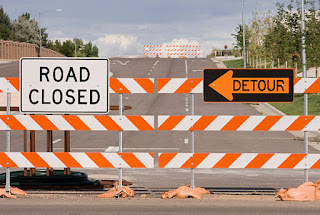Weekly Opinion Editorial
ROADBLOCK NOT GUARDRAIL
by Steve Fair
In Oklahoma, citizens have the ability to collect signatures to place a
new statute or constitutional amendment on the ballot. They can also get a veto referendum on the
ballot to ask voters to uphold or repeal an enacted law. Oklahoma is one of 26 states that has a mechanism/tool
for citizens to petition and enact legislation and bypass the legislature.
The most impactful initiative petition effort in Oklahoma history happened
in 1991, when a group of rag tag citizens from across the Sooner state banded
together and got State Question #640 on the 1992 ballot. They didn’t pay professional signature
gatherers to get voter John Hancocks.
They personally stood outside Wal-Marts and went door-to door. Getting those 230,000 signatures was a high
threshold, but they were successful. Their
efforts were rewarded when voters approved SQ#640 in March 1992 with 56.2% of
the vote. SQ#640 amended Article 5,
Section 33 of the Oklahoma Constitution restricting how taxpayer money is
spent. Under SQ#640, a revenue bill can
only become law if: (1) it is approved by a 3/4 vote of both legislative
chambers and then signed by the Governor, or (2) it is referred to a vote of
the people by the legislature and approved by a majority.
Since passage of SQ 640 in 1992, Oklahoma voters have approved only one
state question to raise taxes: SQ#713, which increased tobacco tax in 2004. No revenue bill had gotten the 3/4th
margin in the legislature until 2018, when HB#1010 was passed- the largest tax
increase in Oklahoma history. SQ#640 has
resulted in Oklahomans keeping billions of their money in their pockets instead
of sending it to 23rd and Lincoln.
This week, the Oklahoma Senate made it harder for citizens to get
something on the ballot. Senate Bill
1027 (SB#1027) authored by Sen. David Bullard, (R-Durant) and House Speaker
Kyle Hilbert, (R-Bristow) would cap the number of initiative petition
signatures that could be gathered from each county. It passed the state senate along Party
lines. If SB#1027 becomes law, only 10%
of the signatures of a petition could come from Oklahoma or Tulsa County. In the other 75 counties the max number would
be 4%. According to Bullard, the current
system allows petitioners to only solicit in urban areas to get the required
signatures. He wants to make signature
gatherers to ‘diversify’ and get signatures from throughout the state. Bullard said SB#1027 puts ‘guardrails” on the
Oklahoma initiative process. Three
observations:
First, SB#1027 violates the concept of one man/one vote. The founding fathers believed in the one
man/one vote concept so much that they required the government conduct a
decennial census. The purpose is to
assure fair apportionment of seats in the U.S. House of Representatives among
the states, based on population. SB#1027
would make some Oklahoma citizen’s voice stronger than others. It flies in the face of ‘equal and fair’
representation.
Second, SB#1027 isn’t a guardrail- it’s a roadblock. Oklahoma’s initiative process doesn’t need to
be reformed/revised/amended. This isn’t
the first time (and likely will not be the last time) the legislature has attempted
to ‘manage’ the initiate petition process. What misguided lawmakers fail to understand is
in when they make it harder for liberals to get State Questions on the ballot, they
do the same to conservatives. SB#1027 is not conservative legislation and antithetical
to liberty and freedom.
Third, SB#1027 would not change Oklahoma demographics. Bullard and Hilbert believe they can legislate
rural Oklahoma to significance. The
issue is the population shift in Oklahoma.
Urban areas are growing and are more liberal. It could have a long-term impact on Oklahoma
politics. The key is educating, not legislating.
SB#1027 sends the message that urban
citizens are not as important as rural.
Contact your state representative and ask them to oppose SB#1027. It is a roadblock, not a guardrail and a poke in the eye to citizens who championed SQ#640.




No comments:
Post a Comment